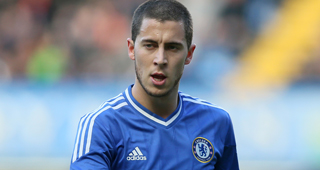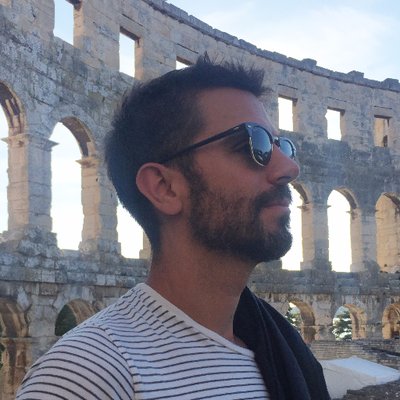Managers: Belgium (Marc Wilmots), Russia (Fabio Capello), South Korea (Hong Myung-bo), Algeria (Vahid Halilhodžić)
Schedule:
June 17: Belgium vs. Algeria
June 17: Russia vs. South Korea
June 22: Belgium vs. Russia
June 22: South Korea vs. Algeria
June 26: South Korea vs. Belgium
June 26: Algeria vs. Russia
Group Summary:
The blend of strength and skill Belgium puts out there makes them one of the most balanced XI’s and why so many observers are bullish on their chances to go deep. Russia and South Korea are a virtual toss-up to also advance, though the former would be the tougher out moving forward. Algeria is merely here as fodder.
The Success of Each Team Will Be Defined By:
Belgium: The deep and balanced pool of talent finds chemistry to become even better than the sum of their parts
Russia: Creating enough chances by linking up through the midfield
South Korea: How well the depth of the midfield plays the entire pitch
Algeria: Give their attack enough chances to shine individually
Wilmots’ squad has a lot of potential to become the sentimental favorite of the hipster contingent during this World Cup considering the amount of telegenic young big name talent that plays in the EPL (11 players), and that it’s location and propensity for outstanding beer makes it a favorite for backpackers.
More importantly, they have an excellent shot of entering the Round of 16 with nine very attractive points since they have the second easiest road after Argentina.
Only one player over 30 and the second youngest average age at 25.7, which means the squad should be able to take a big swing against in Russia in 2018.
Belgium’s chances begin and end with Eden Hazard, who is a true multi-dimensional threat with his dribbling from the wing, while he also loves playing the role of creator as his idol Zidane did so brilliantly. Hazard is only 23 and is already one of the 10 best players in the world, which means Belgium gets a player who will be arguably the best player on the pitch for three World Cups.
Unlike so many other squads, even some with plans on making a deep run, Belgium has quality options at striker and goalie in Romelu Lukaku and Thibaut Courtois respectively.
Lukaku is a monster target man at 6’3, 220 and had an impressive loan this past season at Everton, and he’s likely to join Atlético Madrid next season as Diego Costa’s replacement. Lukaku is just 21, but he is well-rounded with the ability to make plays off the dribble and not just in the air.
Hazard and Lukaku are supported up front with Kevin De Bruyne on the opposite flank and Nacer Chadli in the middle.
Courtois was brilliant throughout Atleti’s La Liga winning season, as well as in the Champions League. He has great length at 6’6 and combines great instincts with remarkable discipline for a keeper that just turned 22 last month.
Ahead of Courtois is one of the best back fours of the entire World Cup led by captain Vincent Kompany, Jan Vertonghen, Thomas Vermaelen and Toby Alderweireld. All four are center fullbacks by trade, which could be problematic against teams that attack wide, but at least the talent is there.
There has been a huge turnover of Russia’s squad in recent years and they possess more talent than they do known quantities since they all play in their own domestic league in what is their first World Cup since 2002. Russia plays a disciplined game under Capello, who will be willing to adapt his formation depending on the opponent and situation.
Like so many other squads, Russia is entering the World Cup without a key cog in captain Roman Shirokov. This will leave Aleksandr Kokorin and Yuri Zhirkov to tackle playmaking duties in the midfield, which is the strength of the team.
Alan Dzagoev is Russia’s version of Hazard, but he hasn’t quite lived up to his prodigy status and there’s concern that will never happen despite being just 23 still. Capello doesn’t seem to trust Dzagoev, but they will need him to make plays in which he enters late in matches Russia is trailing in.
Russia’s strong defense is anchored by Sergei Ignashevich and in a weak group beyond Belgium, Capello is the perfect manager to get them into the round of 16 by playing mistake-free football.
South Korea has an experienced squad with a clear identity due to their midfield play, though they replaced their manager after qualifying.
Son Heung-Min can effective play a lot of different roles going forward and has been a consistent goal scorer in the Bundesliga across the past two seasons. South Korea’s attack will funnel his way more often than not and his ability to find the goal from distance or deep in the box makes him tough to cover.
Ki Sung-Yueng links up the defense to the attack with his creativity and is their most reliable contributor. Koo Ja-cheol is another player capable of setting South Korea up.
The back line for South Korea is fairly average and are reliant on the midfield to keep things clean in front of them.
Algeria has several individually talented players, but they lack any type of organization or team play to be anything more than 11 footballers battling on their own.
Sofiane Feghouli is Algeria’s best player and a creative playmaker from the wing. Feghouli had seven goals and eight assists this past season for Valencia, while he also is one of Algeria’s more productive players on defense.
Yacine Brahimi also plays in La Liga (Granada) and is a one-dimensional dribbler that can score goals on his own with his speed.
Algeria lacks quality in the middle of the field and in the back, while they also tend to freelance and are forced to foul excessively.
Feghouli and/or Brahimi will have a moment or two across their three matches, but Algeria will be giving up a lot of crooked numbers on the goal tally.



